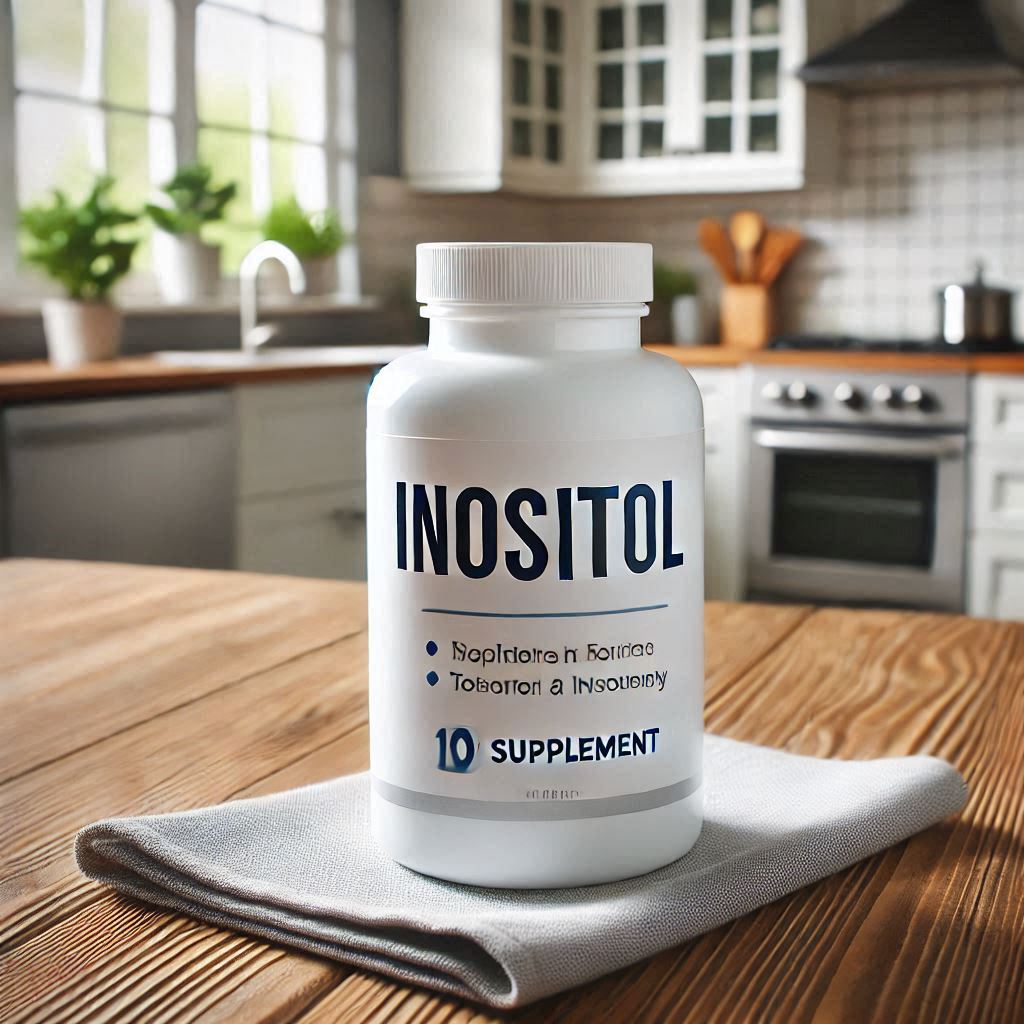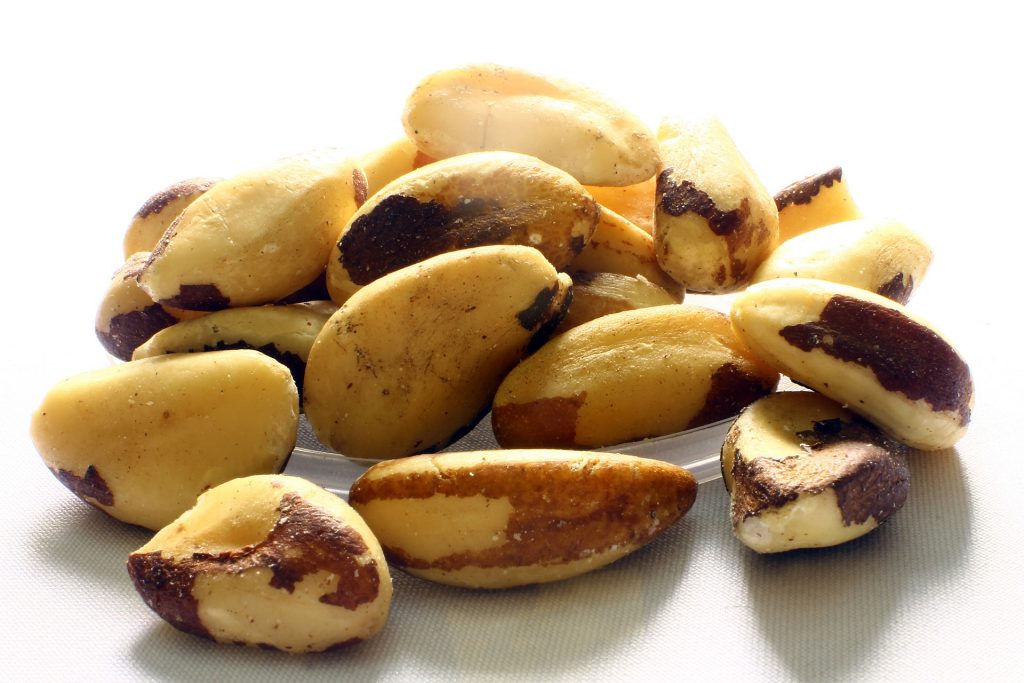Inositol

Inositol is a natural compound found in numerous foods. The structure of inositol is very similar to sugar, which gives inositol a mildly sweet flavor with no bitter aftertaste. Interestingly, inositol cannot be metabolized the same way as sugar and does not raise blood sugar or cause weight gain. In fact, the research shows that inositol does just the opposite, helping balance blood sugar and supporting weight loss. Inositol exists in a number of different forms, with the most common being myo-inositol, which is the focus of this article.
In the body, inositol has a number of different functions. First, inositol can help improve blood sugar regulation (Bevilacqua 2018). Since inositol has a similar structure to sugar, competition between the two molecules in the digestive tract slows sugar uptake. In addition, inositol seems to act in a similar way to insulin, the hormone that helps the tissues of the body uptake sugar from the bloodstream.
Beyond effects on blood sugar, inositol plays a role in cellular signaling. Inositol is incorporated into compounds that serve as messengers that influence energy production (Nagpal 2024). It also plays a role in relaying the cellular signals of neurotransmitters like serotonin from the exterior to the interior of a cell (Benvenga 2021, Concerto 2023)
Potential Benefits
As a supplement, inositol has been investigated for the treatment of a number of different conditions, including blood sugar problems, hypertension, obesity, polycystic ovarian syndrome, low thyroid function and mental health conditions.
Blood Sugar Problems and Diabetes
Based on the effects of inositol, it makes sense to consider the supplement for helping with blood sugar control. During pregnancy, some individuals develop blood sugar problems that can spiral into “gestational diabetes,” a form of diabetes associated with pregnancy. For those that develop gestational diabetes, the lifelong risk of blood sugar problems, diabetes and other health problems increase. Preventing diabetes safely during pregnancy can improve outcomes.
Inositol has been used in a number of clinical trials to prevent or treat gestational diabetes. A meta-analysis of studies on inositol for treatment found that it led to a “remarkably decreased treatment requirement with insulin (Chen 2024).” Treatment with inositol reduced the need for insulin injections by 76%. It’s also helpful for prevention. A trial from 2024 used inositol in pregnant women and found that four grams per day improved blood sugar response and helped to prevent gestational diabetes (Asimakopolous 2024).
A more general study assessing the published clinical trials on the effects of inositol for blood sugar dysregulation also found benefits (Miñambres 2019). Inositol was shown to lower blood sugar effectively through improvements in insulin resistance.
Inositol and Hypertension
Hypertension or high blood pressure is often a silent condition with minimal symptoms. Yet elevated blood pressure causes significant damage, and is a leading factor contributing to heart disease. And high blood pressure is often related to high blood sugar (Modan 1985).
A review from 2021 evaluated seven clinical trials investigating the effects of inositol on blood pressure (Tari 2021). The conclusion was that inositol drops blood pressure in patients with blood sugar problems by around five and seven points for the top and bottom blood pressure numbers respectively. Dosing of four grams per day for two months or longer was needed for best efficacy.
Inositol and Obesity
Similar to blood pressure, obesity often has roots in blood sugar problems and metabolic dysfunction. Inositol’s effects on these factors makes it an obvious choice as a potential treatment. And indeed, a review of clinical trials with inositol found that as a supplement, it can help patients lose weight (Zarezadeh 2022). The benefits appear to be most pronounced for those with obesity or polycystic ovarian syndrome (see below). In the study, average results were quite modest, although results from patients who weren’t obese were included, likely reducing the overall effect size.
Inositol and Polycystic Ovarian Syndrome (PCOS)
Polycystic ovarian syndrome (PCOS) is the most common hormonal condition in women of reproductive age. Individuals with PCOS have disrupted menstrual cycles and often struggle with weight gain, increased testosterone, acne and unwanted facial hair growth. The condition is commonly rooted in blood sugar dysregulation.
As a treatment for PCOS, due to its efficacy, researchers have recommended inositol as a potential first-line therapeutic. A trial in women with PCOS showed that myo-inositol, combined with a small amount of D-chiro-inositol (in a 40-to-1 ratio), was effective for reversing hormonal and metabolic aspects of the condition (Nordio 2012). For context, a standard 4000 mg dose of myo-inositol would be combined with 100 mg of D-chiro-inositol.
A meta-analysis comparing standard medication with inositol for treating PCOS concluded that both treatments were equally effective (Fatima 2023). However, inositol has a likely advantage due to producing less side effects with its use.
Thyroid Health

The thyroid is a gland in the neck that produces thyroid hormones. These hormones set the pace at which the body functions. When thyroid hormones are too low, an individual typically feels fatigued and depressed with symptoms of constipation, hair loss or even muscle and joint pain. Frequently, hypothyroidism or low thyroid function is caused by an autoimmune reaction. Of interest, initial evidence appears to suggest that inositol may help to improve thyroid function.
A meta-analysis of inositol combined with selenium supplementation on thyroid conditions found that the combination helps to lower elevated thyroid stimulating hormone (Yavari 2024). When thyroid stimulating hormone is high, it indicates that thyroid function is low. The combination also has been shown to help increase levels of T4, one of the two main thyroid hormones involved in setting metabolic rate.
Inositol and Mental Health
While some studies have been published on the potential benefits of inositol for mental health, the results are quite mixed and inconclusive. Some of the most recent reviews concluded that inositol may be ineffective for depression and obsessive-compulsive disorder (Schefft 2017, Kishi 2022).
The only mental health indication that appears to have more positive findings is panic attacks (Zulfarina 2019). While I do not think that this is the end of the story, I usually limit the use of inositol to cases where a patient has specific blood sugar problems or other indications for inositol that are combined with a mental health condition.
Conclusion
Inositol is a fascinating supplement that has well documented benefits. The strongest effects appear to be related to blood sugar problems, high blood pressure, PCOS, obesity, low thyroid function and possibly panic disorder. Other than occasional gastrointestinal side effects with higher doses, inositol is usually well tolerated.



